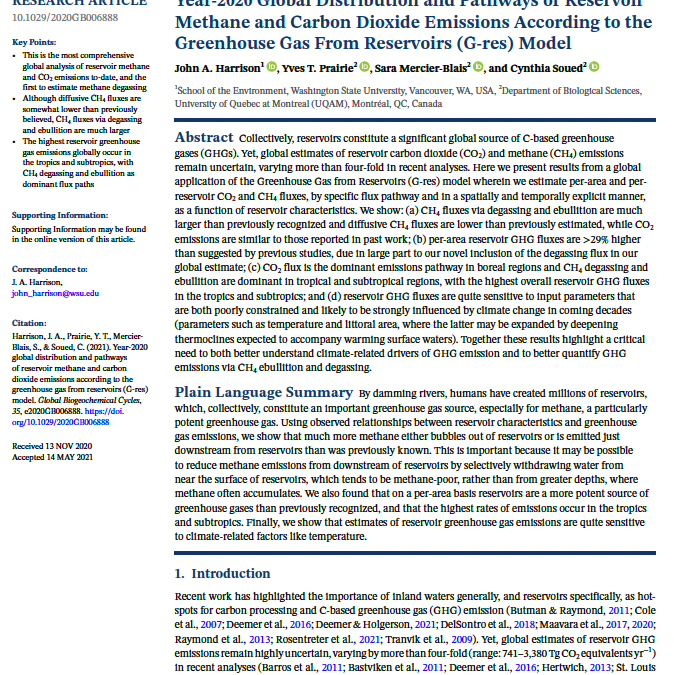
by Colleen McNally-Murphy | May 26, 2021
Abstract Collectively, reservoirs constitute a significant global source of C-based greenhouse gases (GHGs). Yet, global estimates of reservoir carbon dioxide (CO2) and methane (CH4) emissions remain uncertain, varying more than four-fold in recent analyses. Here we...
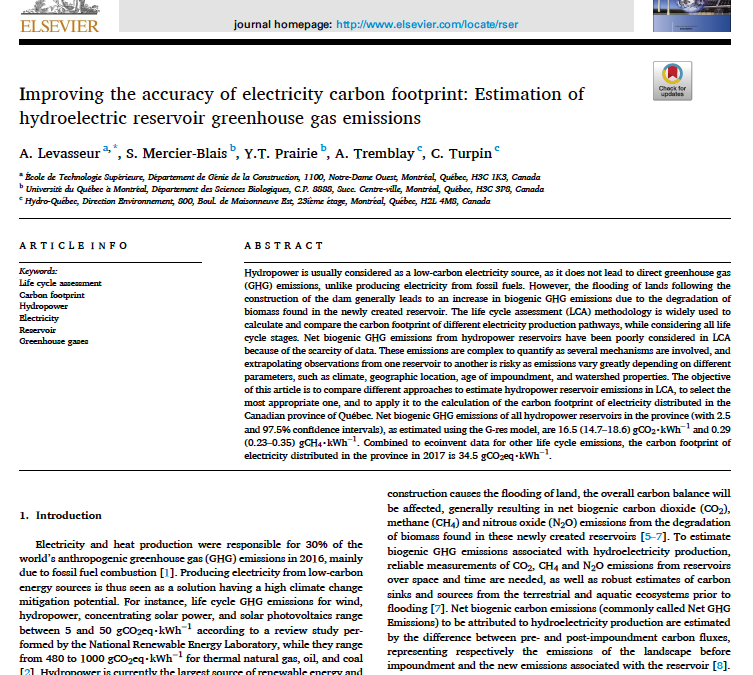
by Colleen McNally-Murphy | Oct 16, 2020
Abstract: Hydropower is usually considered as a low-carbon electricity source, as it does not lead to direct greenhouse gas (GHG) emissions, unlike producing electricity from fossil fuels. However, the flooding of lands following the construction of the dam generally...
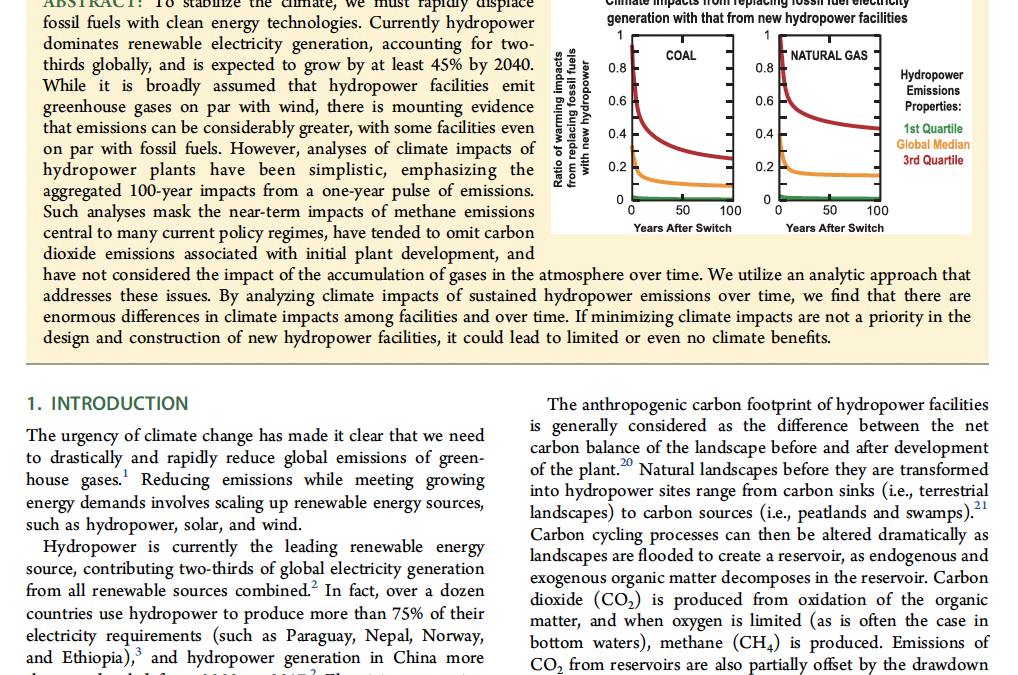
by Colleen McNally-Murphy | Nov 14, 2019
Abstract: To stabilize the climate, we must rapidly displace fossil fuels with clean energy technologies. Currently hydropower dominates renewable electricity generation, accounting for two thirds globally, and is expected to grow by at least 45% by 2040. While it is...
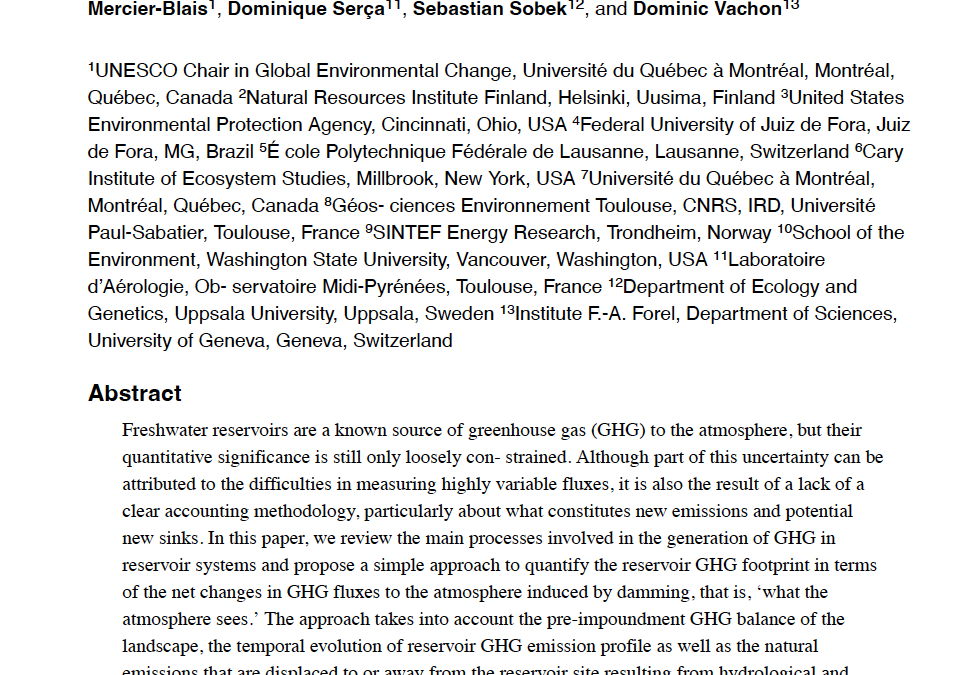
by Colleen McNally-Murphy | Jan 1, 2019
Abstract: Freshwater reservoirs are a known source of greenhouse gas (GHG) to the atmosphere, but their quantitative significance is still only loosely con- strained. Although part of this uncertainty can be attributed to the difficulties in measuring highly variable...
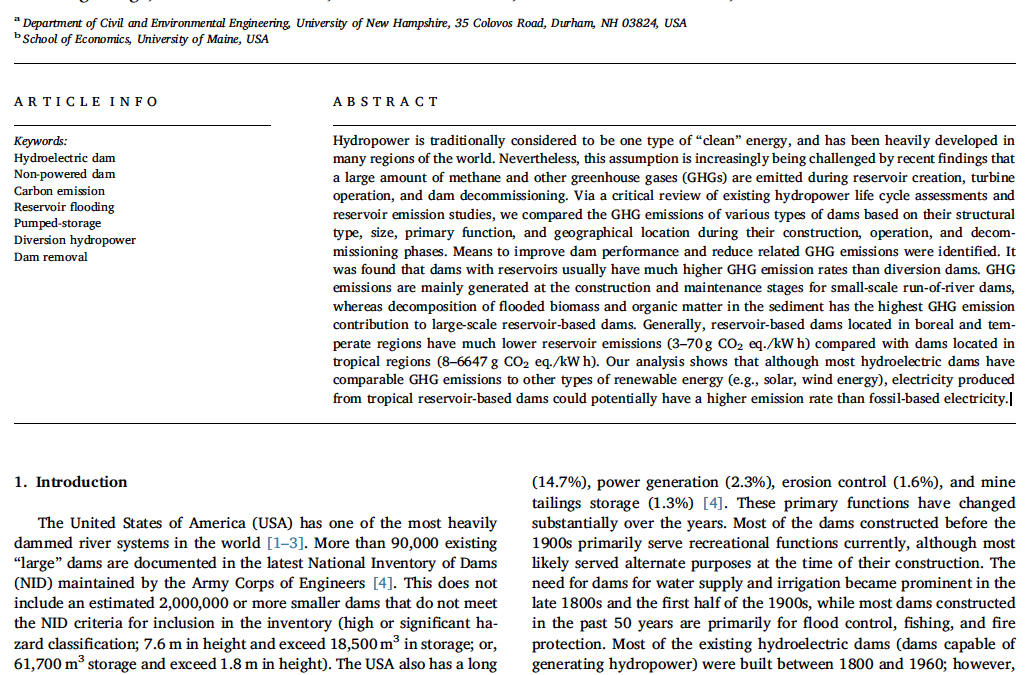
by Colleen McNally-Murphy | Jul 1, 2018
Abstract: Hydropower is traditionally considered to be one type of “clean” energy, and has been heavily developed in many regions of the world. Nevertheless, this assumption is increasingly being challenged by recent findings that a large amount of methane and other...






